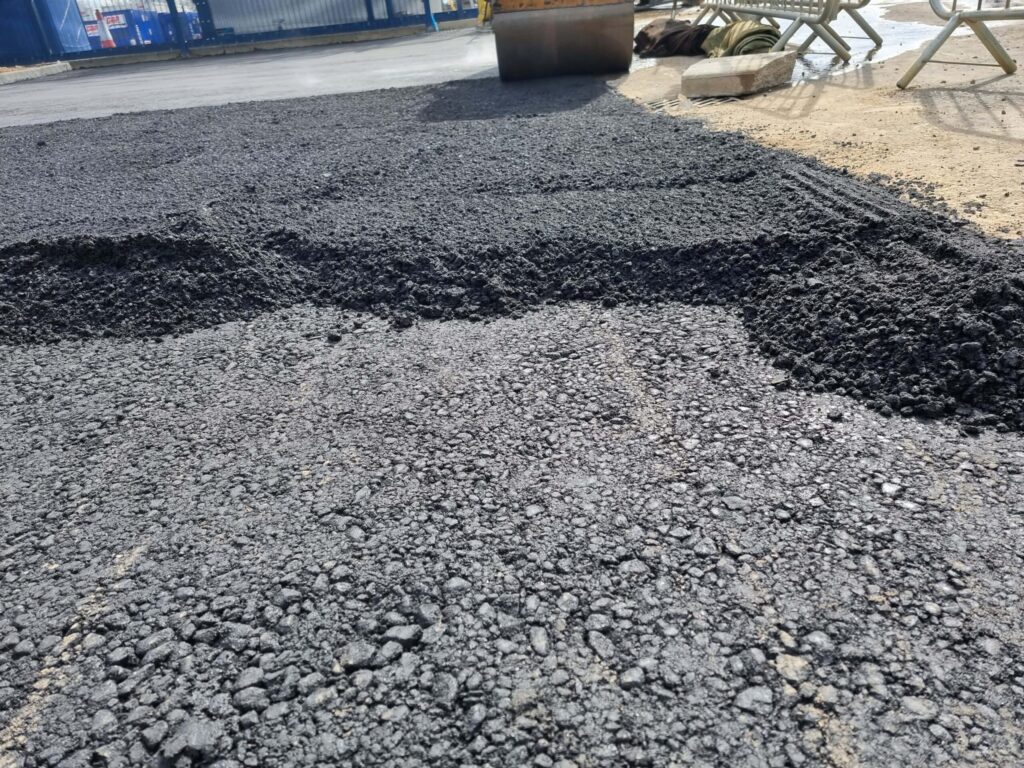Why Tarmac Roads Are Essential for Efficient Farm Operations
Farm operations rely heavily on robust and reliable infrastructure. Among these, tarmac roads play a vital role, providing farmers with a durable and practical solution to enhance daily operations. At Bury St Edmunds Driveway Solutions, we understand the unique needs of agricultural businesses in Bury St Edmunds, Suffolk, and provide high-quality tarmac solutions designed to improve farm efficiency. Here, we explore why tarmac roads are essential for farm operations and how they contribute to the long-term productivity of your agricultural business.
1. Increased Accessibility and Mobility
One of the primary benefits of tarmac roads on farms is the increased accessibility they provide. Farms often span large areas, with various buildings, fields, and equipment scattered across the property. A tarmac road allows for easier movement between these areas, saving time and reducing wear on vehicles.
- All-weather access: Tarmac roads provide reliable access throughout the year, unaffected by heavy rains or muddy conditions that can leave dirt paths difficult to navigate. This all-weather accessibility ensures that farmers can reach critical areas whenever needed, regardless of the season.
- Improved transport efficiency: Tarmac’s smooth surface allows for faster and safer movement of equipment, produce, and livestock. For farmers who rely on regular deliveries or transporting goods to market, having tarmac roads reduces travel time and minimises vehicle maintenance costs by providing a consistent, stable driving surface.
2. Durability and Low Maintenance
Farms require roads that can withstand frequent use and heavy loads. Tarmac is known for its durability and is engineered to handle high-traffic areas and heavy machinery, such as tractors, trucks, and other agricultural equipment.
- Long-lasting performance: Tarmac roads are built to last, withstanding daily wear and tear and supporting the weight of farm machinery without cracking or breaking down. With proper installation and occasional maintenance, tarmac roads can remain in good condition for years, reducing the need for costly repairs.
- Low upkeep costs: Unlike gravel or dirt paths, which require regular grading, filling, and weed control, tarmac is relatively low maintenance. Its durable surface resists rutting and erosion, helping farmers save on maintenance time and costs, allowing them to focus more on core farming tasks.
3. Enhanced Safety for Workers and Equipment
Safety is paramount in farm operations, not only for workers but also for valuable equipment. A well-constructed tarmac road helps improve safety in several ways.
- Reduced risk of accidents: Uneven or unpaved paths can be hazardous, particularly for vehicles carrying heavy loads or livestock. Tarmac roads provide a stable, predictable surface that minimises the risk of accidents caused by potholes, loose gravel, or mud.
- Equipment protection: Farm equipment is a significant investment, and transporting it over rugged or muddy terrain can lead to excessive wear and costly repairs. Tarmac’s even surface reduces the risk of damage to machinery, extending the lifespan of these valuable assets.
4. Efficient Water Drainage
Agricultural settings are prone to heavy rainfall, and managing water effectively is essential to prevent road damage and keep farm areas accessible. Tarmac roads can be designed with effective drainage solutions, ensuring water flows away from the road surface.
- Customisable drainage solutions: Tarmac roads can be installed with slight gradients or drainage channels that direct water away from key areas, preventing pooling and potential damage. This drainage capability helps maintain the integrity of the road and reduces maintenance requirements over time.
- Mud-free access: By preventing water from accumulating on the road, tarmac helps keep pathways free from mud, which is essential for transporting produce or equipment. It also minimises the risk of vehicles getting bogged down during wet weather, ensuring consistent access and efficient farm operations.
5. Boosted Property Value and Aesthetic Appeal
Beyond functionality, tarmac roads also enhance the visual appeal of a farm. A well-maintained road network can create a positive impression on visitors, business partners, or potential buyers, increasing the farm’s value.
- Professional appearance: Tarmac provides a neat and professional look to farm properties, improving the overall aesthetic of the landscape. This can be particularly beneficial for farms open to the public or those engaging in agri-tourism, where a professional appearance adds to the customer experience.
- Increased resale value: Well-constructed tarmac roads add tangible value to a property. If a farm is ever sold or passed on, the presence of a durable and well-maintained road network can make the property more appealing and increase its market value.
Conclusion
Tarmac roads are an essential investment for any farm, offering improved accessibility, durability, safety, and value. By providing reliable access and low maintenance requirements, they allow farmers to focus on productivity and efficiency rather than spending time and resources on constant repairs.
At Bury St Edmunds Driveway Solutions, we specialise in creating durable and professionally installed tarmac solutions for farms in Bury St Edmunds, Suffolk. Contact us today to discuss how our tarmac services can support your farm’s operations and help you achieve long-term success. A high-quality tarmac road isn’t just a path—it’s an investment in the future of your farm.
Call us on: 01284 331 496
Click here to find out more about Bury St Edmunds Driveway Solutions
Click here to complete our contact form and see how we can help with your driveway needs.

